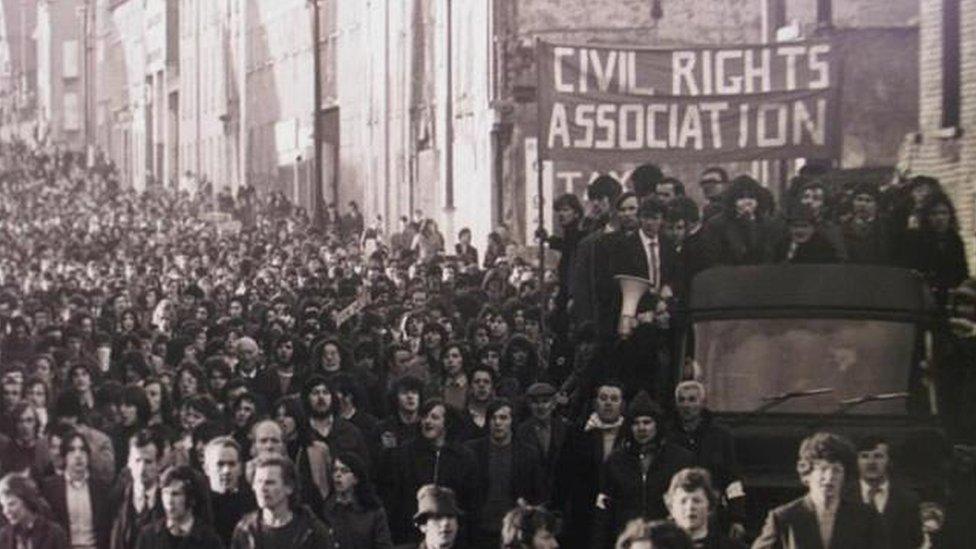Bloody Sunday victim 'forgave the soldier who shot him'
- Published

Demonstrators took part in a civil rights march through the streets of Londonderry before the shootings on 30 January 1972
The son of a Londonderry man shot on Bloody Sunday says his father forgave the soldier responsible.
Patrick Campbell, who was 52 and a father-of-nine, was shot at close range by a soldier, Lance Corporal F, while trying to run to safety.
Thirteen people died after members of the Army's Parachute Regiment opened fire on civil rights demonstrators.
Mr Campbell was seriously injured and subsequently quit working as a docker.
He died from cancer in 1985.
His son, Billy, said his father was "not a bitter man".
"He did forgive, he didn't hold a grudge, what was done was done and he couldn't change that, that was his attitude," Billy Campbell told Â鶹ԼÅÄ Radio Foyle.
The Campbell family were awarded more than £160,000 in compensation in Belfast's High Court on Tuesday.
The court heard Mr Campbell was hit by a bullet from a high velocity rifle fired by Lance Corporal F on Bloody Sunday.
Soldiers on the ground in Derry in January 1972
Mr Campbell said: "The money doesn't mean a lot. It won't bring him back. It's just money."
He also said his father went to the grave before being vindicated.
"He was branded, as they were all branded on Bloody Sunday as terrorists, as bombers," he said.
"That was the main thing that they were vindicated from that, money didn't come into it, that's what we wanted."
He said his father had went on the 1972 march, to "keep an eye on the kids" and never fully recovered from his ordeal.
"He kept everything to himself, would not tell you anything, he kept everything from the family.
"He couldn't go back to work, he wasn't fit for it. It is hard for a man, who has been doing that all his life since he was 14, and then all of a sudden not be fit for work."
When his mother died, his father raised the family alone.
"He had to be a mother and a father for everyone," Mr Campbell said.
Mr Justice McAlinden told Belfast High Court on Tuesday that Mr Campbell would not have given up a job that was "his life" unless compelled to do so for reasons directly attributable to being shot on Bloody Sunday.
The judge said that the sudden death of Mr Campbell's wife in 1973 and the realisation that he would never return to work as a docker led to the development of chronic depression.
- Published11 June 2019